If you’ve ever thought about buying or refinancing a home, you’ve probably heard the term “closing costs.” These are the fees you pay at the closing table to cover a variety of expenses related to a new home mortgage. But how much are closing costs? And are you required to pay them all upfront? The simple answer to these questions is there’s really no simple answer. This is because the amount of money you must pay at the closing table depends on several factors. But before we delve into this, let’s take a look at what closing costs typically include. Knowing this will help you figure out which fees you might can avoid, reduce or delay.
What Do Closing Costs Generally Include?
The full list can be fairly long. And not all costs apply in all situations. So, we’ll just go with fees for the appraisal, mortgage application, home inspection, mortgage underwriting, private mortgage insurance application (with a down payment of less than 20%), property taxes, homeowners insurance premium and prepaid interest. There are others, too, but they might not apply to you. Your Fairway of the Carolinas mortgage adviser will provide additional guidance.
How Much Are Closing Costs?
It all really depends. They are usually higher if the loan is bigger. They typically amount to no more than 6% of the loan, but they’re often less. Let’s say, for the sake of example, your closing costs are 5% on a $200,000 loan. Here, your closing costs would be $10,000. That may sound like a lot, but it’s not, comparatively speaking. That’s a drop in the bucket compared to your principal balance. And, hopefully, it’s also a pittance compared to what you have in savings.
Do Closing Costs Have To Be Paid Upfront?
Closing costs on a mortgage loan are due at the closing table (except in certain cases, which we list in the next section). However, on a refinance, they can be rolled into the loan and included as part of your monthly payments. Sure, you’ll have to pay these fees (plus interest) over time, but it’s a great way to save for now if you’re a little strapped for cash or don’t want to clean out your savings.
Is There A Way To Reduce, Delay Or Eliminate Closing Costs?
In a nutshell: Yes. And these can be done in several ways. One is through lender credits. If a mortgage lender offers you credits, the lender will absorb your closing costs. The more credits you accept, the lower the fees at closing. The tradeoff is a slightly higher interest rate on your loan. But if you’re looking to save money for the time being, this is a wonderful option. Another option is to negotiate with the seller by asking them to pay all or some of the closing costs. If they’re eager to sell in a hurry and like your offer on the home, they just might be willing to shoulder all or some of the closing costs.
You could also pay closing costs with gift money from a relative or friend, or a grant from a public agency. It also never hurts to check with state or local housing agencies to see what options may exist. Many offer low-interest loan programs or grants for first-time homebuyers. In the case of a USDA loan, it may also be possible to roll some or all of your closing costs into your mortgage if the home appraises for more than the sales price. Here, you would use the extra loan amount to cover the closing costs.
Final Thought
Don’t let closing costs stop you from buying a home or refinancing. First, you probably will have the money to pay them upfront, which is what most people do. But if you don’t, there are ways to avoid shelling out this cash at once … or at all. The important thing is to remember that with the market sizzling hot and interest rates extremely low, there’s never been a better to buy or refinance. Contact us today and let us guide you from mortgage pre-approval all the way to the closing table.








